|
|
|
|
|
|
|
|
No Arctic-science events are scheduled for today.
|
Media
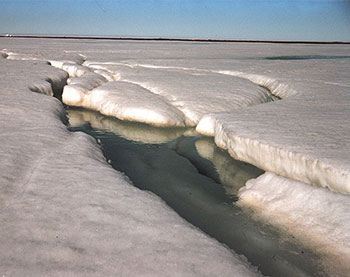 Arctic Sea Ice Decline Driving Ocean Phytoplankton Farther North Arctic Sea Ice Decline Driving Ocean Phytoplankton Farther North. A new study reveals phytoplankton spring blooms in the Arctic Ocean, which were previously nonexistent, are expanding northward at a rate of one degree of latitude per decade. Although blooms did not previously occur in this area, phytoplankton were present in the Arctic's central basin at low biomass. The study also found the primary productivity of the phytoplankton, or the rate at which phytoplankton convert sunlight into chemical energy, is increasing during the spring blooms. Science Daily
Mercury, PCBs Still Threaten Arctic and Its Wildlife Study Shows. A new summary of toxins in the Arctic shows contaminants, such as mercury, continue to threaten polar bears and whales. But new threats - both chemical and climatic - are emerging, says the report done for the eight nations that ring the North Pole. "The number and types of contaminants continue to broaden," said Canadian scientist Robert Letcher, one of the lead authors of the study for the Arctic Council. CBC News
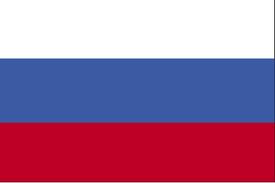 Russia Updates Maps of Radioactive Debris Sunk in Arctic. Russia Updates Maps of Radioactive Debris Sunk in Arctic. Russian scientists have said that radioactive waste sunk in the Arctic by the Soviet Navy has not leaked any contamination, but have urged Moscow to continue funding observation of the underwater nuclear wrecks. Data on the scuttled cargoes -- which includes several thousand containers of radioactive waste, as well as an entire nuclear submarine -- come from a month-and-a-half-long expedition in the Kara Sea conducted by the Russian Academy of Sciences Institute of Oceanology. Maritime Executive AFN Kicks Off Next Week in Anchorage. The annual Alaska Federation of Natives convention is right around the corner. This year, the theme is "Innovations: Past, Present and Future," which is meant to "(celebrate) the benefits of innovation and the necessity of continuing to strive for, seek and facilitate innovation as we move through the 21st Century," according to AFN's convention announcement. Once again, visitors will have a selection of activities to choose from over the three-day convention, which kicks off next Thursday. Arctic Sounder
|
|
Future Events
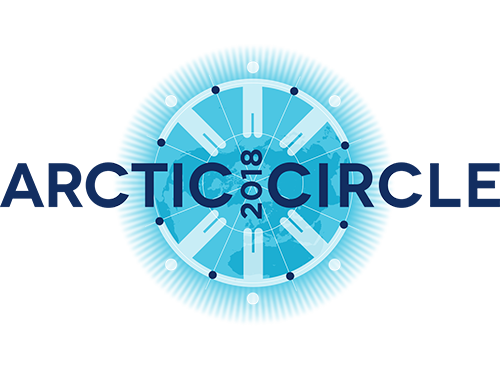 Arctic Circle Assembly, October 19-21, 2018 (Reykjavik, Iceland). The annual Arctic Circle Assembly is the largest annual international gathering on the Arctic, attended by more than 2000 participants from 60 countries. It is attended by heads of states and governments, ministers, members of parliaments, officials, experts, scientists, entrepreneurs, business leaders, indigenous representatives, environmentalists, students, activists and others from the growing international community of partners and participants interested in the future of the Arctic. Arctic Circle Assembly, October 19-21, 2018 (Reykjavik, Iceland). The annual Arctic Circle Assembly is the largest annual international gathering on the Arctic, attended by more than 2000 participants from 60 countries. It is attended by heads of states and governments, ministers, members of parliaments, officials, experts, scientists, entrepreneurs, business leaders, indigenous representatives, environmentalists, students, activists and others from the growing international community of partners and participants interested in the future of the Arctic.
** New this week ** Towards a Roadmap for Coordinated Arctic Observing, October 24, 2018 (Berlin, Germany). The side event is a follow up to the Arctic Observing Summit held in June 2018. The theme for the AOS was "Business Case for a Pan-Arctic Observing System." The first part of the session will demonstrate the value of Arctic observations, linking these to relevant Societal Benefit Areas. The second part will show how Arctic long-term observing systems are linked to and support decision-making from local to global scales. In the summing up panel, calls to action to the Arctic Science Ministerial will be formulated. This event is convened by the Sustaining Arctic Observing Networks (SAON) initiative of the Arctic Council, the European Commission, and the Arctic Observing Summit (AOS), an activity jointly overseen by SAON and the International Arctic Science Committee (IASC).
Arctic Science Forum Associated with the 2nd Arctic Science Ministerial, October 25, 2018 (Berlin, Germany and via webcast). How vulnerable and how resilient are nature and the people of the Arctic region? How well do we understand the regional and global dynamics which are driving change in the Arctic? What impact will change in the Arctic have on us? These and other questions are the focus of this two-day conference. It will take interdisciplinary research in the Arctic to gain an understanding of past and future processes - a complex and cost-intensive venture. This makes an international network of Arctic research so important for delivering better results. Cooperation in research, the exchange of data, collaborative observation and monitoring schemes - international cooperation is imperative in research on the Arctic.
Only the Science Forum, on October 25th, will be webcast. The Arctic Ministerial, on October 26th, will NOT be webcast.
aim of this Government of Canada and the Government of Newfoundland and Labrador supported international conference is to promote stakeholder collaboration, technological innovation, harsh environment research & development, and world-class education efforts that are contributing to both Maritime and Arctic issues. This two day conference will draw a diverse group of speakers and attendees representing government, military, Canadian and U.S. Coast Guard, industry, academic leaders, Northern Leaders, research and other key stakeholders. We hope you can join us to be a part of this important dialogue
American Geophysical Union Fall meeting, December 10-14, 2018 (Washington, DC USA). The AGU 2018 Fall Meeting will mark another dynamic year of discovery in Earth and space science, serve as the advent of AGU's Centennial year, and provide a special opportunity to share our science with world  leaders in Washington, D.C. As the largest Earth and space science gathering in the world, the Fall Meeting places you in the center of a global community of scientists drawn from myriad fields of study whose work protects the health and welfare of people worldwide, spurs innovation, and informs decisions that are critical to the sustainability of the Earth.
ArcticNet: Annual Scientific Meeting 2018, December 10-14, 2018 (Ottawa, ON Canada). Canada's North is experiencing unprecedented change in its sea and terrestrial ice, permafrost and ecosystems under the triple pressures of climate change, industrialization and modernization. The impacts of these pressures can be seen on food and energy security, shipping, sovereignty, northern community health and well-being, and sustainable development and resource exploitation. All these issues have brought the North to the forefront of national and international agendas. Building on the success of its previous Annual Scientific Meetings and International Arctic Change Conferences, the Arctic Network of Centers of Excellence announces the 14th ArcticNet Annual Scientific Meeting.
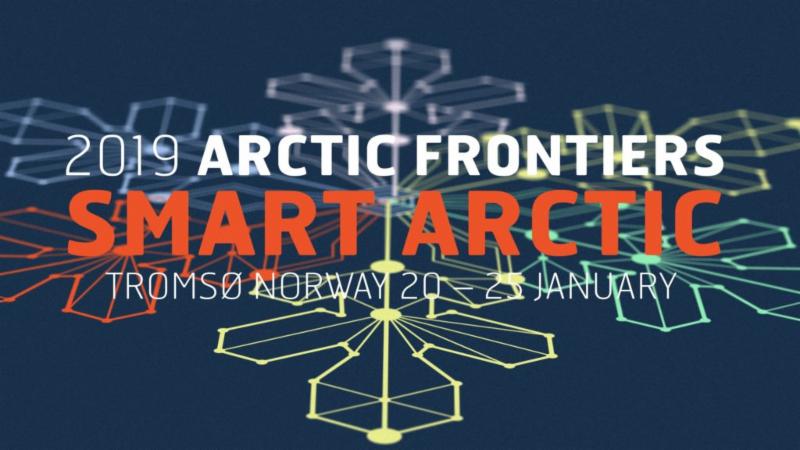 Arctic Frontiers, January 20-25, 2019 (Tromso, Norway). The Arctic Frontiers is a global scientific conference on economic, societal, and environmental sustainable growth. This year's theme will be "Smart Arctic," with a pan-arctic emphasis, and an effort to build new partnerships across nations, generations and ethnic groups. Arctic Frontiers provides a forum for dialogue and communication between science, government and industry. The plenary program will have five main sessions: State of the Arctic, Blue Growth, Smart Solutions, Bridging the Gap, and Arctic business prospects. An abstract-driven science program will address Plastics in the Ocean, the Future of Governance and Handling Vulnerability in Arctic Ecosystems, State of the Arctic and A Smart Arctic Future.
 of the AAG includes over 8,500 geographers converging from the U.S., Canada, and nearly 60 other countries in a typical year including geographers, GIS specialists, environmental scientists, and other leaders for the latest in research and applications in geography, sustainability, and GIScience. of the AAG includes over 8,500 geographers converging from the U.S., Canada, and nearly 60 other countries in a typical year including geographers, GIS specialists, environmental scientists, and other leaders for the latest in research and applications in geography, sustainability, and GIScience.
|
|

  
4350 N. Fairfax Drive, Suite 510
Arlington, VA 22203, USA
External links in this publication, and on the USARC's World Wide Web site ( www.arctic.gov) do not constitute endorsement by the US Arctic Research Commission of external Web sites or the information, products or services contained therein. For other than authorized activities, the USARC does not exercise any editorial control over the information you may find at these locations. These links are provided consistent with the stated purpose of this newsletter and the USARC Web site.
|
|
|
|
|
|
|
|
|
 Arctic Sea Ice Decline Driving Ocean Phytoplankton Farther North. A new study reveals phytoplankton spring blooms in the Arctic Ocean, which were previously nonexistent, are expanding northward at a rate of one degree of latitude per decade. Although blooms did not previously occur in this area, phytoplankton were present in the Arctic's central basin at low biomass. The study also found the primary productivity of the phytoplankton, or the rate at which phytoplankton convert sunlight into chemical energy, is increasing during the spring blooms. Science Daily
Arctic Sea Ice Decline Driving Ocean Phytoplankton Farther North. A new study reveals phytoplankton spring blooms in the Arctic Ocean, which were previously nonexistent, are expanding northward at a rate of one degree of latitude per decade. Although blooms did not previously occur in this area, phytoplankton were present in the Arctic's central basin at low biomass. The study also found the primary productivity of the phytoplankton, or the rate at which phytoplankton convert sunlight into chemical energy, is increasing during the spring blooms. Science Daily Russia Updates Maps of Radioactive Debris Sunk in Arctic. Russian scientists have said that radioactive waste sunk in the Arctic by the Soviet Navy has not leaked any contamination, but have urged Moscow to continue funding observation of the underwater nuclear wrecks. Data on the scuttled cargoes -- which includes several thousand containers of radioactive waste, as well as an entire nuclear submarine -- come from a month-and-a-half-long expedition in the Kara Sea conducted by the Russian Academy of Sciences Institute of Oceanology. Maritime Executive
Russia Updates Maps of Radioactive Debris Sunk in Arctic. Russian scientists have said that radioactive waste sunk in the Arctic by the Soviet Navy has not leaked any contamination, but have urged Moscow to continue funding observation of the underwater nuclear wrecks. Data on the scuttled cargoes -- which includes several thousand containers of radioactive waste, as well as an entire nuclear submarine -- come from a month-and-a-half-long expedition in the Kara Sea conducted by the Russian Academy of Sciences Institute of Oceanology. Maritime Executive

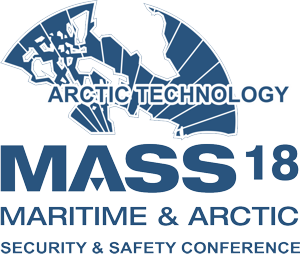 must-attend event to gain a wide perspective on challenges, opportunities and policies related to the Arctic and North Atlantic maritime environments. The
must-attend event to gain a wide perspective on challenges, opportunities and policies related to the Arctic and North Atlantic maritime environments. The 
